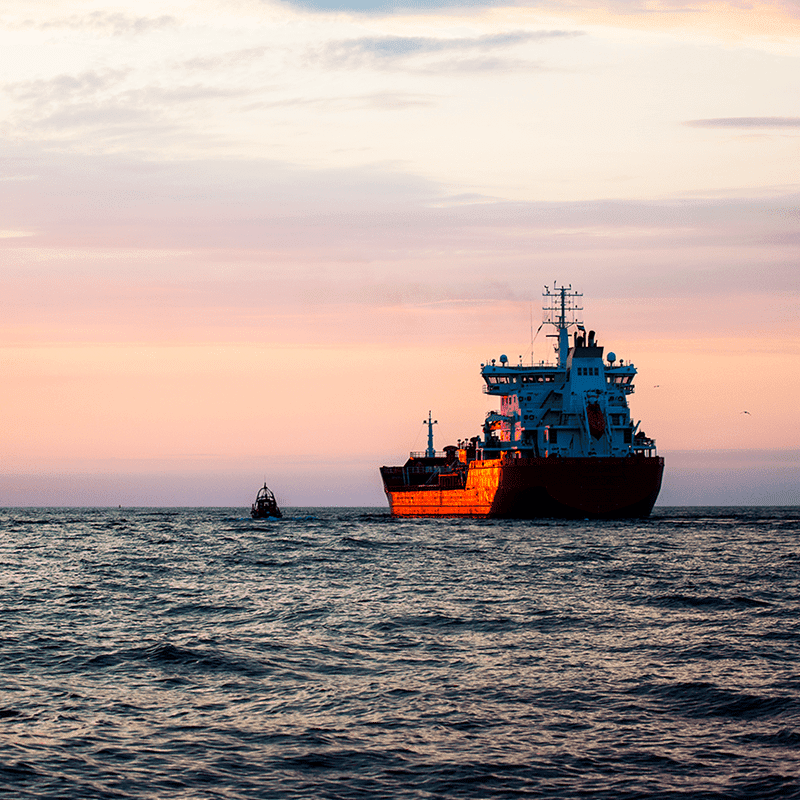BLOG
The ultimate factor in sustainability: Nature Positive
- Eco Friendly
2024.06.25
It has been a long time since the world began to take climate change initiatives as a matter of course in corporate activities, and “Nature Positive” has been raised as the next social issue that companies will face.
In March 2024, Japan’s Ministry of the Environment, the Ministry of Agriculture, Forestry and Fisheries, the Ministry of Economy, Trade and Industry, and the Ministry of Land, Infrastructure, Transport and Tourism publicized Transition Strategies toward a Nature Positive Economy, this strategy outlines the necessity of transitioning to a “Nature Positive Management”, compiles elements that companies should consider upon transition, and gives concrete examples of possible new business opportunities. It also gives actual form to the national government's measures to support the transition to nature positive management. The strategy aims to create an economy that conserves nature by changing the behavior of companies, financial institutions, and consumers through the implementation of this strategy. In this issue, we will introduce what is required of companies in a nature-positive economy, along with our initiatives.
What is nature positive?
Nature Positive refers to efforts to halt the damage to natural capital, such as biodiversity, and put it on a recovery path in the future. The three milestones are: (1) Halt and (2) Reverse Nature Loss by 2030, using 2020 as the baseline, and (3) achieve a full recovery by 2050.
 Source: The Definition of Nature Positive (Nature Positive Initiative)
Source: The Definition of Nature Positive (Nature Positive Initiative)
It has been widely recognized for many years that biodiversity is essential in preventing climate change and disasters, reducing the risk of infectious diseases, and for the survival of plants and animals. However, the debate has been stalled because of the wide range of biological targets and the fact that the extinction of some species does not seem to be an urgent threat to many people. The word “nature positive” was first used at the United Nations Biodiversity Summit in 2020, and the WEF report “The Future Of Nature And Business” stated that “more than half of the world's GDP, or about $44 trillion, is potentially lost due to the loss of nature. The catchy expression “nature positive” has also helped to reignite the debate.
Following the acceptance of the 2030 Nature Compact at the 2021 G7 Summit and the agreement of each country to commit to nature positivity, the UN Biodiversity Conference (COP 15) held in Canada in December 2022 focused on the actions of companies and investors, and adopted the Kunming-Montreal Global Biodiversity Framework (commonly known as GBF), which set a global biodiversity target by 2030 with 23 goals. These goals include numerical targets such as "#3 Conserve 30% of Land, Waters and Seas (30by30)" and “#6 Reduce the Introduction of Invasive Alien Species by 50% and ‘Minimize Their Impact’”. With many requests for actions by companies also being included, Nature Positive is now becoming the second most important social issue for companies to address, after carbon neutrality and the circular economy.
Source: Nations agree to ‘historic’ deal to protect a third of the world’s biodiversity | COP15 Wrap (Youtube: United Nations)
What is required of a company?
Recovery and contributions through business
In the past, many corporate efforts to protect biodiversity and ecosystems included activities such as tree-planting and beach cleanups, which were rarely associated with their business. According to Mr. Manabe, who is in charge of ESG-related corporate engagement at S & P Global Sustainable1, companies are now expected to contribute to biodiversity and ecosystem protection throughout their businesses in order to gain a better understanding from stakeholders. Just as corporate efforts to achieve carbon neutrality are already focused on how to reduce CO₂ emissions through their business, it is important for companies to take a nature-positive approach from the perspective of “how to halt and restore the damage done to natural capital and biodiversity through their business”. In other words, it is important to take initiatives from the viewpoint of “how to halt the damage caused to natural capital and biodiversity in projects and how to restore it”.
Disclosure -TNFD (The Taskforce on Nature-related Financial Disclosures)
As an endorsement of the need for companies to contribute through their business, the Kunming-Montreal Biodiversity Framework and its 23 targets adopted at COP15 clearly stated that “#15 Businesses Assess, Disclose and Reduce Biodiversity-Related Risks and Negative Impacts“. In June 2021, one year earlier than COP15, the Taskforce for Nature-related Financial Disclosures (TNFD) was established to provide a global information disclosure framework with the aim of visualizing companies natural capital and biodiversity conservation efforts that are otherwise invisible in financial statements alone. As of April 2024, there are approximately 1,500 companies and institutions around the world that support the TNFD, including approximately 220 institutions in Japan. We are also a member of the Forum.
The TCFD (Task Force on Climate-related Financial Disclosures) already exists as a task force to promote such disclosure on a global scale, but because it is a voluntary framework for disclosing information that visualizes a company's social value, which cannot be measured by financial statements, the items and granularity of information disclosed under the TCFD by Japanese shipping companies, for example, differ greatly*. Therefore, it is expected that the information disclosed under the TNFD will also vary from company to company.
The TNFD Final Proposal, released in September 2023, defined 14 Core Global Metrics that companies will use as a reference when disclosing information. In principle, companies are required to disclose all Core Global Metrics, but in cases where they cannot be disclosed, companies are allowed to progressively increase the level of disclosure, stating the reasons for this. Against this background, it is expected that disclosed information by companies will be varied for some time to come.

TNFD : Recommendations of the Taskforce on Nature-related Financial Disclosures, Global Core Indicators
*MOL discloses the evaluated quantitative impact of factors (changes in cargo movement, fuel cost, carbon tax, the introduction of alternative fuel-powered vessels and new business opportunities, etc.) based on each climate change scenario, down to the specific changes in profit and loss.

MOL’s initiatives for Nature Positive
While we have long been involved in biodiversity and ecosystem protection, we would like to introduce our recent “Nature Positive” initiatives, which are primarily focused on enhancing our corporate social value.
As mentioned above, we endorse the TNFD and are promoting initiatives for natural capital and biodiversity as adopted at COP15, with the goal of achieving “a world of living in harmony with nature by 2050”.
 Most symbolically, in response to the WAKASHIO grounding and oil pollution accident that occurred in Mauritius in 2020, we established a local subsidiary, MOL (Mauritius) Ltd.
Most symbolically, in response to the WAKASHIO grounding and oil pollution accident that occurred in Mauritius in 2020, we established a local subsidiary, MOL (Mauritius) Ltd.
In addition, in MOL Sustainability Plan, we have set the goal of the “Preservation of marine environments / Protection of biodiversity” and have introduced specific initiatives, including our activities in Mauritius, details of which can be found on this website.
Management of ballast water
Ballast water carries marine organisms around the world and can have a negative impact on marine ecosystems and biodiversity. As of April 2023, we have installed a ballast water treatment system on 252 owned vessels.
Control and Management of Ships' Biofouling
The transfer of invasive aquatic species by ships has been identified as a major threat to biodiversity. We are taking measures such as coating the hull with environmentally friendly paint that prevents organisms from adhering to the hull.
Reducing the negative impact of noise on marine life
By installing Propeller Boss Cap Fins (PBCF), an energy-saving device sold by MOL Techno-Trade, Ltd., we reduce underwater noise by eliminating the hub vortices.
Collection and investigation of marine microplastics and marine debris
A microplastic (microscopic plastic particles of 5 mm or less) collection equipment, jointly developed with Miura Co., Ltd., will be installed on vessels in operation to collect microplastics in the ocean while the vessel is underway.
Marine Biodiversity Big Data Project 'Ocean180'
MOL participates in an industry-academia-government collaborative project called "Ocean180" to conserve marine biodiversity. We have provided ship operation data, and so on, cooperating in the development of technology to visualize the impact of shipping on ecosystems, integrating marine life data and ocean shipping data.
Mangrove Restoration and Conservation Project in Indonesia
This is an activity that embodies the importance of mangrove protection learned through the restoration of the natural environment after the WAKASHIO grounding and oil pollution accident. We participate in the Blue Carbon Project for Mangrove Restoration and Conservation Activities in South Sumatra, Indonesia, and have adopted the silvofishery process to help improve the livelihoods of local residents through sustainable fishery and forest management, aiming to create a society where people live in harmony with nature.
Support for International Initiatives
As mentioned above, we participated in the TNFD Forum in November 2022. In January 2024, we registered as a TNFD Early Adopter, with a declaration of our intention to disclose nature-related financial information for fiscal 2024 in accordance with the Disclosure Recommendation Framework during fiscal 2025. Currently, we are preparing for information disclosure under the leadership of the Environment & Sustainability Strategy Division.
In addition, MOL and an MOL's group company, Daibiru Corporation, joined the "30by30 Alliance for Biodiversity", established by a group of 17 industry, private, and government organizations, including the Ministry of the Environment, with the aim of effectively promoting "#3 Conserve 30% of Land, Waters and Seas (30by30)" announced at COP15.
We are an institutional member of the International Society for Mangrove Ecosystems (ISME) and promote collaboration with other companies and organizations.
The ultimate factor in sustainability
The abnormal weather and sea level rise caused by climate change are easily felt by us humans, and information such as greenhouse gas (GHG) emissions and temperature change is easily quantifiable. Therefore, society and companies have been focusing on climate change measures centered on carbon neutrality. However, climate change measures alone cannot solve all environmental issues, and natural capital and biodiversity are also elements that affect sustainability. These are also important issues that companies should address.
With the publication of the final version of TNFD, the interest of stakeholders, including investors, has increased. It is important for companies to quantitatively understand the impact they have had on nature and ecosystems, strengthen efforts to reduce and recover losses, and communicate this clearly externally.
Just as carbon neutrality has pushed forward renewable energy, electrification, and carbon dioxide utilization businesses and the circular economy has developed subscription services, nature positivity can also be seen as a new business opportunity. The World Economic Forum (WEF) points out that transitioning to a nature-positive economy could create 395 million jobs and up to $10 trillion in business opportunities annually by 2030. For companies, it will be necessary to take an offensive stance, such as creating mechanisms that contribute to nature positivity while expanding business areas.

Writer:Mai
Joined MOL in 2014 after working for a foreign shipping company and 2 years stay in Shanghai, China. After being in charge of operating bulk carriers for about 4 years, now I’m involved in development and promotion of “Lighthouse”, a portal site for dry bulk customers, in the marketing department since April 2019. We aim to stay close to customer's perspective and develop the user friendly service. Weekly yoga is my precious break time.
Recommended Articles
2022.07.05
- General Shipping
2021.04.13
- Energy
2025.03.18
- General Shipping
2021.08.07
- Eco Friendly
Latest Articles
2026.02.02
- Eco Friendly
- General Shipping
2026.01.20
- Eco Friendly
- General Shipping


.png)

.png)
.png)








